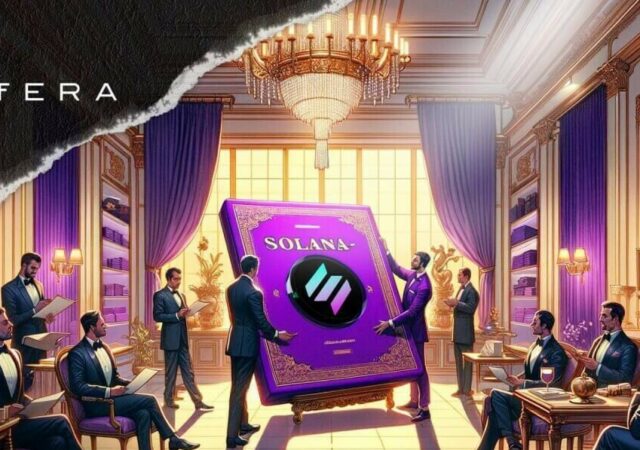Picture this: regular smartphones, but with a crypto twist. They’re called Ethereum smartphones, and guess what? They’ve sold from the shelves in just one day! This is big news, and this is important to understand the future of the crypto market and what it means for all of us.
Ethereum Smartphones with Innovative ethOS Operating System
The first Ethereum-based smartphone pre-sale was a surprising success. More than 50 mobile devices sold out within just 24 hours. These smartphones are powered by an innovative open-source operating system called ethOS, built on Ethereum’s smart contracts.
The “Ethereum Phone” is not just a regular smartphone. It is a gateway to the exciting world of Web3. Unlike conventional smartphones, these devices come equipped with a built-in Ethereum light client. This unique feature allows the ethOS operating system to validate blocks autonomously. Essentially, transforms the phone into a “light node” on the Ethereum network. The “Ethereum Phone” is built on the Google Pixel 7a and uses the ethOS, which is also a character from Greek mythology.
Ethereum Smartphones: A Toolkit for Cryptocurrency Handling
One of the standout features of the Ethereum smartphone is its comprehensive toolkit for handling cryptocurrency payments and facilitating secure message transactions. Furthermore, these devices have integrated a sim Ethereum Name Services (ENS) that can simplify payments. Additionally, they are compatible with Ethereum Virtual Machines (EVM) and Layer 2 scaling networks, ensuring users can access the full spectrum of Ethereum’s capabilities.
Acquiring one of these Ethereum smartphones was not a straightforward process. Interested buyers had to secure an ethOS non-fungible token (NFT) to be eligible for purchase during the pre-order phase. This NFT acted as a reservation token, guaranteeing the right to purchase the Ethereum smartphone.
The EthOS NFT Reservation Token
However, it’s important to note that some ethOS NFTs were being sold on one of the largest NFT trading platforms, OpenSea, with an exceptional price of three Ethereum (ETH), equivalent to nearly $5,000. In contrast, the standard Google Pixel 7a retailed at a modest $499 in the US, representing a significant price disparity.
Solana’s Struggling Phone and Price Reduction Response
While the Ethereum smartphone’s pre-sale exploded, the Solana (SOL) smartphone encountered a less welcoming start. Records indicate that slightly over 2,000 Solana’s crypto phone units have been sold since its launch, falling considerably short of expectations.
In response to the competitive challenge posed by the Ethereum smartphone, Solana Labs proposed to reduce the price of their crypto phone. Originally priced at $1,000, it was marked down to $599 to attract potential buyers. This strategic decision came on the heels of the Ethereum smartphone’s announcement, scheduled to debut in the fall of 2023.
Future of Evolving Landscape for Web3 Mobile Devices
In summary, the Ethereum-based smartphones achieved remarkable success in their pre-sale, distinguished by their advanced operating system and Ethereum-centric features. Conversely, Solana’s crypto phone faced stiff competition and resorted to a price reduction strategy to attract buyers. The dynamic landscape of Web3 mobile devices continues to evolve, offering consumers an array of intriguing options to explore.
The information provided in this article is for informational purposes only and should not be considered financial advice. The article does not offer sufficient information to make investment decisions, nor does it constitute an offer, recommendation, or solicitation to buy or sell any financial instrument. The content is opinion of the author and does not reflect any view or suggestion or any kind of advise from CryptoNewsBytes.com. The author declares he does not hold any of the above mentioned tokens or received any incentive from the company





